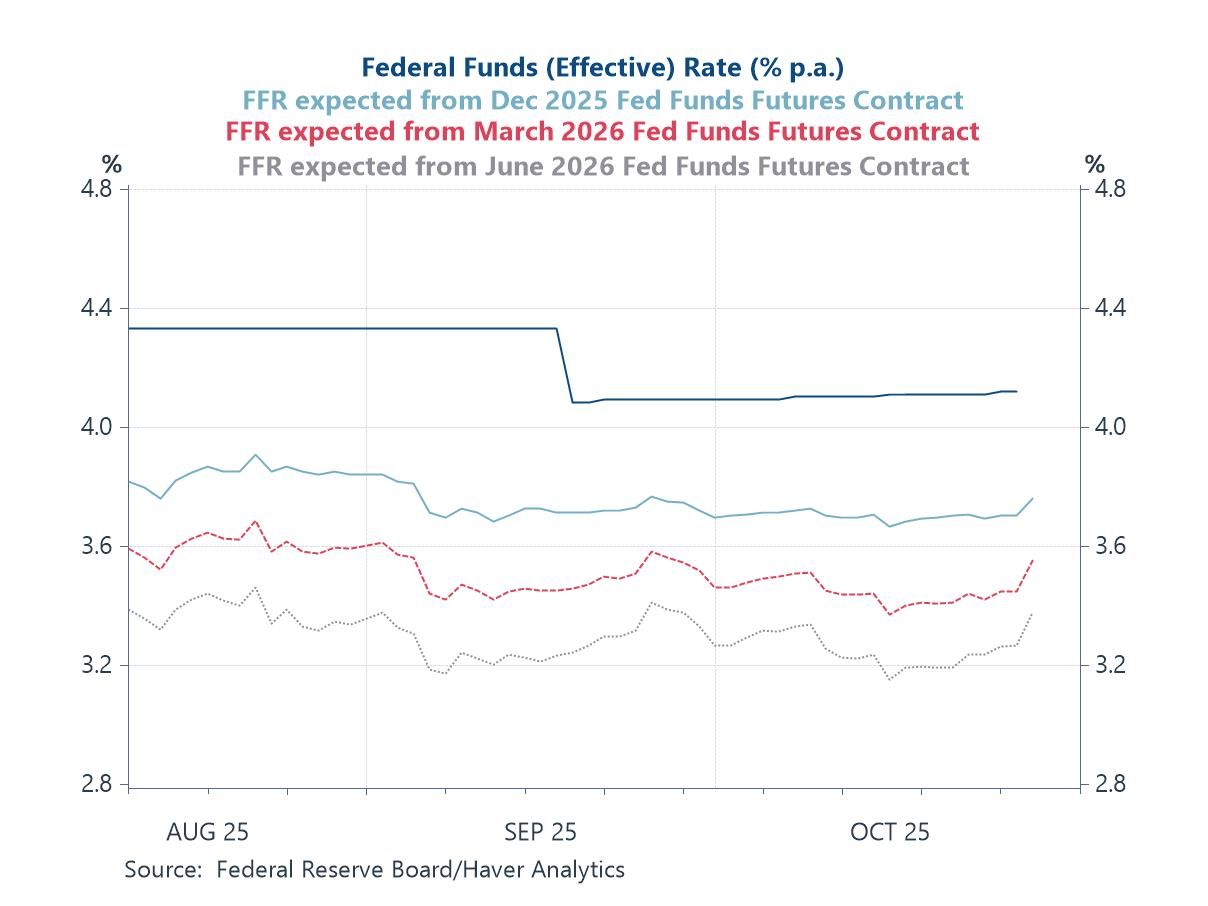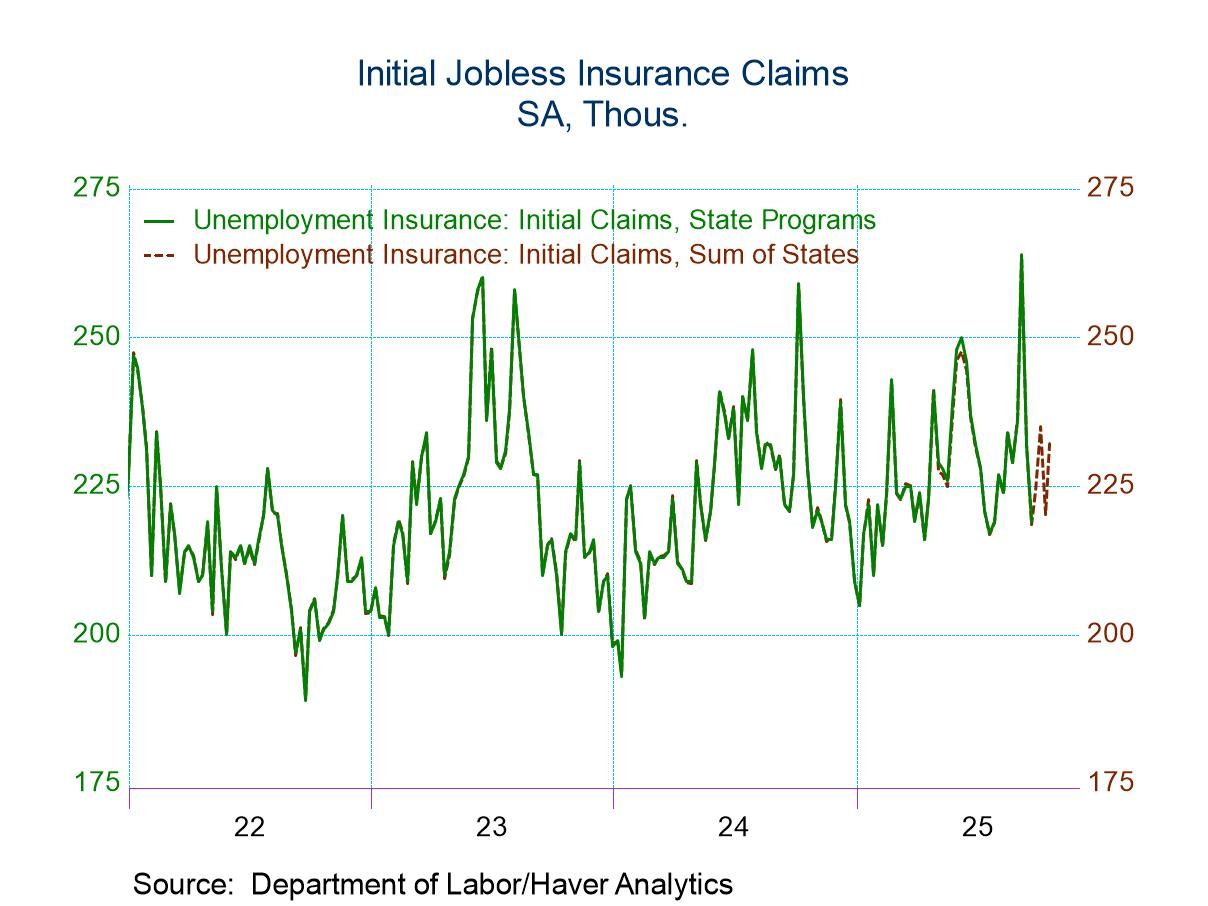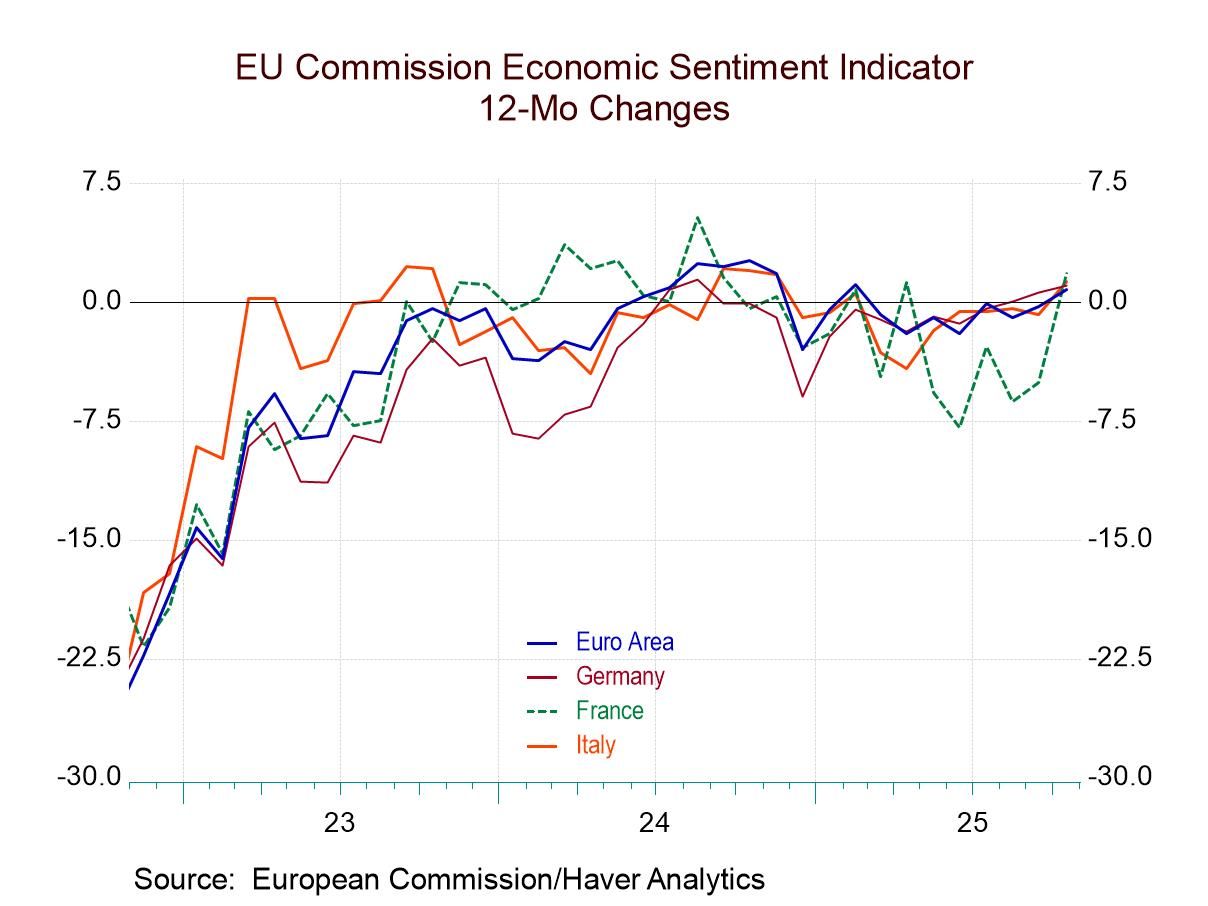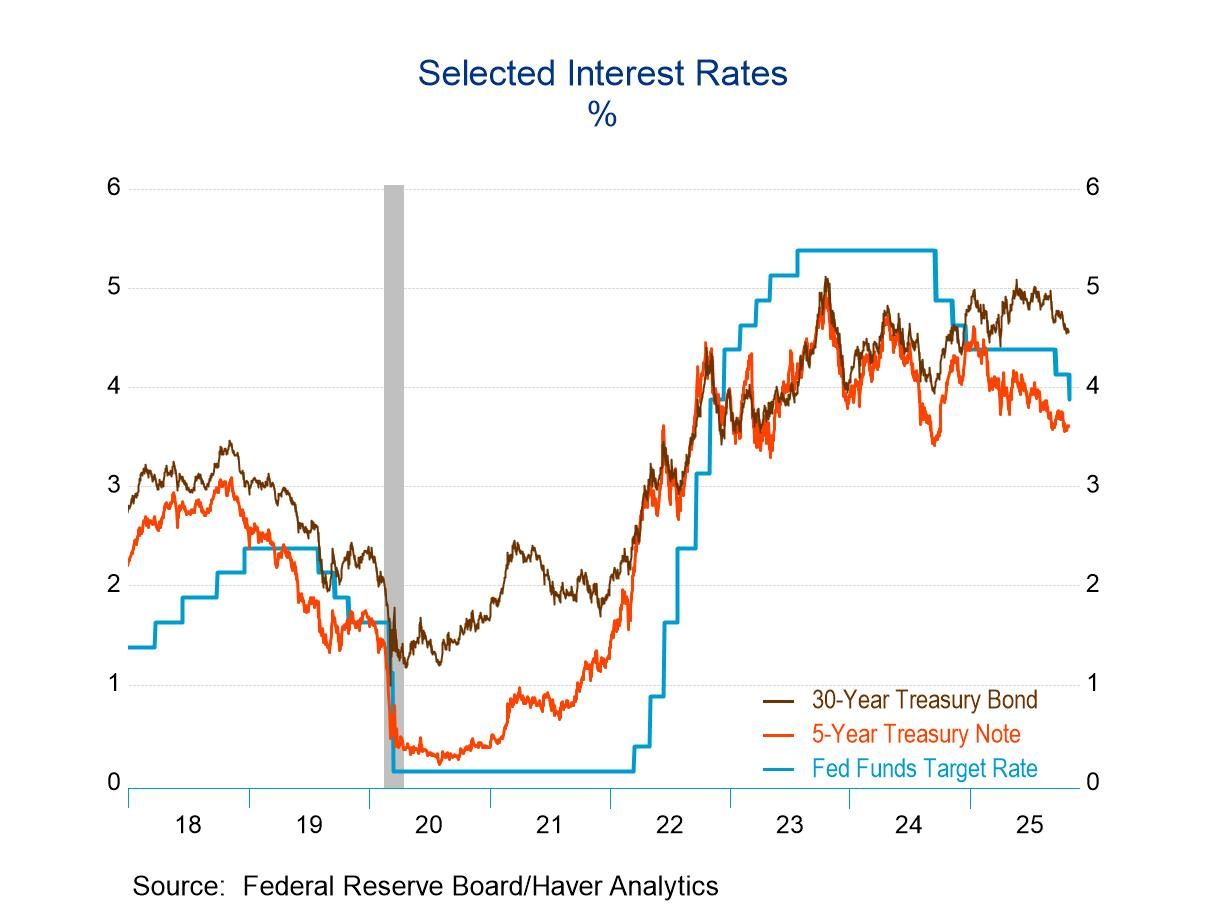 Global| Sep 30 2005
Global| Sep 30 2005U.S. Consumer Sentiment Remained Depressed
by:Tom Moeller
|in:Economy in Brief
Summary
The University of Michigan indicated that its final reading of consumer sentiment during September was unchanged from the preliminary indication of a 13.7% m/m decline to 76.9, the lowest level in over ten years. The September decline [...]
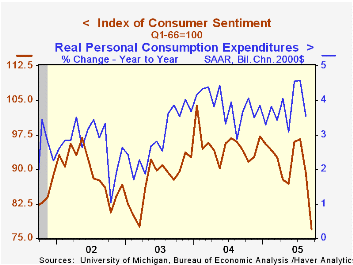
The University of Michigan indicated that its final reading of consumer sentiment during September was unchanged from the preliminary indication of a 13.7% m/m decline to 76.9, the lowest level in over ten years. The September decline followed a 7.7% drop in August and Consensus expectations had been for improvement to 78.0 in August.
During the last ten years there has been a 78% correlation between the level of consumer sentiment and the y/y change in real consumer spending.
Consumer expectations were depressed 17.7% as the index of expected business conditions during the next 12 months cratered 39.2% (-46.6% y/y). Unemployment was expected to rise but interest rates were expected to decline.
The mean expected inflation rate for the next twelve months rose to 5.5% from 3.7% in August and that helped erode expectations for real income by 1.3% (-7.3% y/y).
The current conditions index fell 9.3% m/m, roughly double the decline in August. Sentiment regarding personal finances tumbled 12.0% m/m and was at its worst level in over two years.
The University of Michigan survey is not seasonally adjusted.The mid-month survey is based on telephone interviews with 250 households nationwide on personal finances and business and buying conditions. The survey is expanded to a total of 500 interviews at month end.
| University of Michigan | Sept (Final) | Sept (Prelim.) | August | Y/Y | 2004 | 2003 | 2002 |
|---|---|---|---|---|---|---|---|
| Consumer Sentiment | 76.9 | 76.9 | 89.1 | -18.4% | 95.2 | 87.6 | 89.6 |
| Current Conditions | 98.1 | 97.7 | 108.2 | -5.4% | 105.6 | 97.2 | 97.5 |
| Consumer Expectations | 63.3 | 63.6 | 76.9 | -28.1% | 88.5 | 81.4 | 84.6 |
Tom Moeller
AuthorMore in Author Profile »Prior to joining Haver Analytics in 2000, Mr. Moeller worked as the Economist at Chancellor Capital Management from 1985 to 1999. There, he developed comprehensive economic forecasts and interpreted economic data for equity and fixed income portfolio managers. Also at Chancellor, Mr. Moeller worked as an equity analyst and was responsible for researching and rating companies in the economically sensitive automobile and housing industries for investment in Chancellor’s equity portfolio. Prior to joining Chancellor, Mr. Moeller was an Economist at Citibank from 1979 to 1984. He also analyzed pricing behavior in the metals industry for the Council on Wage and Price Stability in Washington, D.C. In 1999, Mr. Moeller received the award for most accurate forecast from the Forecasters' Club of New York. From 1990 to 1992 he was President of the New York Association for Business Economists. Mr. Moeller earned an M.B.A. in Finance from Fordham University, where he graduated in 1987. He holds a Bachelor of Arts in Economics from George Washington University.



